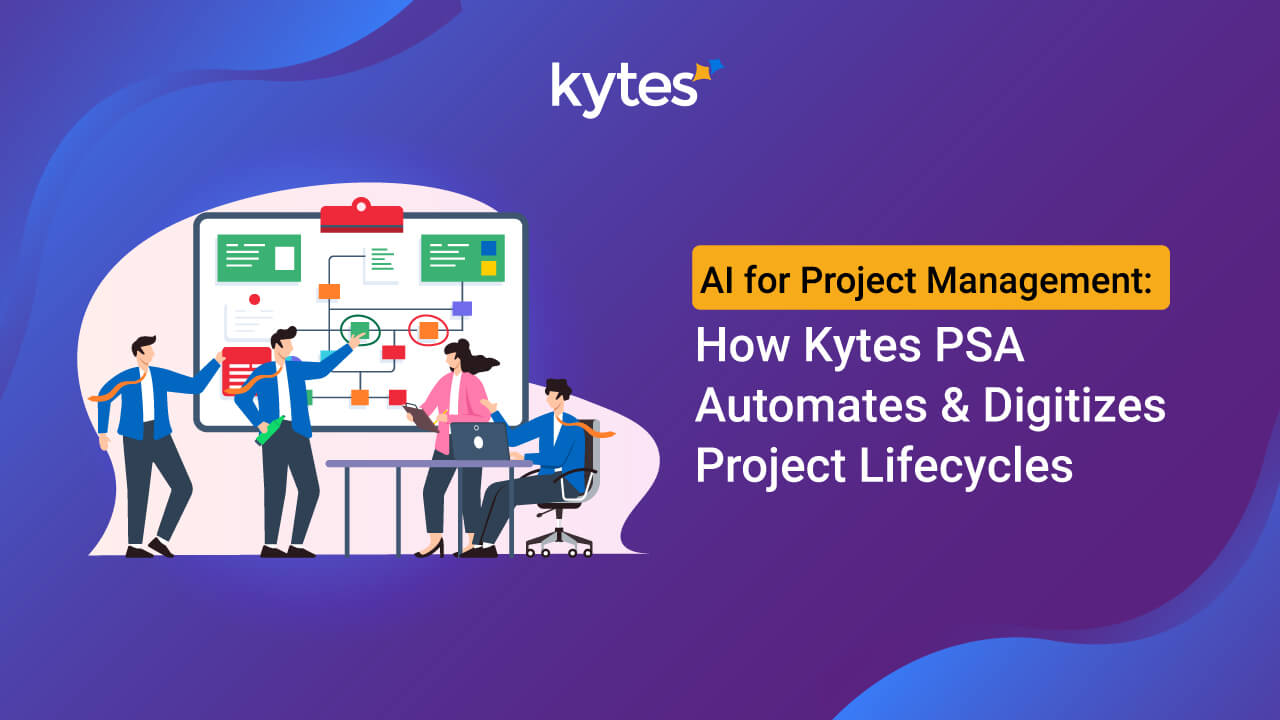Despite big investments in tools and talent, project managers still face the all-too-familiar issues: manual reporting, isolated updates, and last-minute firefighting. One executive will spend an hour creating slides for a review, another scouring for status reports. A third will be talking about unplanned delays on a call with stakeholders. These are not just working hiccups—they are symptomatic of a larger issue: stodgy, isolated project management systems.
A PwC report revealed that 47% of projects fail because of inept requirements management. While 80% of organisations state they spend a minimum of half their time on rework. McKinsey approximates that 45% of project time is dedicated to activities that are automatable. These statistics highlight an evident necessity for more intelligent, more integrated processes. These figures demonstrate a clear need for smarter, more connected processes.
AI fixes these persistent problems by not just automating tasks, but by changing how projects are planned, tracked, and delivered. AI enables the shift in project environments from reactive coordination to proactive, data-driven action. From myths to solutions, this blog discusses how Kytes is orchestrating that transition and what it implies for AI for project management in the future.
But First, Let’s Bust the Common Myths About AI in Project Management
AI project management adoption is typically preceded by reluctance, and that reluctance is typically based on myths. Let’s dispel them.
Myth 1: “AI will replace project managers.”
This is one of the most prevailing fallacies. AI enables project managers instead of replacing them. Reporting, status checking, and documentation are some of the low-value repetitive activities that AI tools can do best. Project managers can focus on what truly matters—leadership, stakeholder management, strategy, and decision-making—by automating the mundane tasks. AI becomes a co-pilot instead of a competitor.
Myth 2: “AI only works with perfect data.”
This supposition keeps many teams from realizing their potential. Though good data enhances results, Kytes is designed to create value in all types of complex, imperfect data settings. Its machine learning and Agentic AI models evolve over time, determining gaps, seeing patterns, and honing recommendations with every loop. This indicates that even organizations in the initial stages of digital maturity can reap value from clever project management.
Myth 3: “AI makes project management impersonal.”
There’s a perception that adding AI takes away the human touch from project management. Rather, Kytes complements the human touch. Managers and team members can do more creative problem-solving, stakeholder communication, and collaboration when repetitive processes are handled by automation. Relationships are supposed to be improved through better systems, not replicated.
Myth 4: “AI is only for large enterprises.”
The second myth is that AI software is suitable for big organisations only and is expensive and complicated. Whether you are a multinational organisation with subsidiaries in multiple countries or a medium-sized company running a handful of portfolios, Kytes is scalable. Through its modular design, no-code templates, and open architecture, teams of any number can start quickly and scale as they build.
How Kytes Pioneers in AI Project Management Software
Let’s explore the features that make Kytes a pioneer among leading AI-based project management software to digitize and automate your project life cycle.
Intelligent Planning with AI-Drafted WBS
Project success starts with smart planning. Conventional planning is usually lengthy and haphazard. Kytes employs AI to create comprehensive Work Breakdown Structures (WBS) from basic project inputs.
Kytes’ Agentic AI reads project objectives and builds formal, task-driven plans, assisting teams:
- Accurately define scope, effort, and cost
- Auto-assign tasks based on past success patterns
- Visualize dependencies with dynamic Gantt charts
This leads to quicker ramp-ups, less ambiguity, and more consistent planning:
Reactive to Proactive Risk Management
In most project failures, risk detection typically occurs too late. Kytes AI reverses that by identifying risks proactively via pattern analysis of project data:
- Planned vs. actual effort deviations
- Indications of team overload or underutilization
- Regularly delayed or defective tasks
Agentic AI suggests mitigation plans based on contextual learning. Teams avert problems before they arise, rather than responding.
Smart Meeting Summaries and Automation
Meetings create great insights, yet taking down and following up on them is mundane. With NLP, Kytes creates automatic Minutes of Meeting (MoMs) from recordings or transcripts.
- Decisions and resolutions
- Action items with owners and due dates
- WBS-linked follow-ups
Kytes’ AI marks open issues and recommends action steps—building a cycle of action and responsibility.
Executive Dashboards with Embedded Intelligence
Executives require speedy answers, not unprocessed data. Kytes provides intelligent dashboards designed for CXOs, delivery heads, and portfolio managers.
Dashboards contain:
- Live status of risks, timelines, and finances
- Drilldowns by region, customer, or business unit
- Exportable visuals for stakeholder interaction
With Kytes’ Agentic AI, dashboards adapt by forecasting leadership requirements and delivering insights ahead of time.
NLP-Powered Smart Search for Instant Answers
Why manually search when AI can do it quicker? Kytes’ smart search enables users to query in natural language, such as:
- “Which projects are overdue in Q3?”
- “Show blockers for the consulting team”
- “List underutilised resources in APAC”
Results show up within seconds, with AI recognizing the user’s role, urgency, and context. It’s quick, smart, and frictionless.
Kytes AI Embedded Throughout the Project Lifecycle
Kytes extends beyond stand-alone features—it deeply integrates AI into the project delivery life cycle:
- Planning: AI-driven WBS, proposal costing, template application
- Execution: Real-time notifications, task suggestions, milestone monitoring
- Monitoring: Effort variance, quality KPIs, delivery slippages
- Governance: Audit processes, approvals, escalation alerts
- Continuous Learning: Post-mortem analysis, trend monitoring, adaptive models
With Agentic AI, Kytes strings these phases together in a continuous learning loop—each cycle improved through contextual intelligence.
Why PSA + AI = Smarter Project Delivery
Professional Services Automation (PSA) delivers the foundation for standardised, scalable service delivery. If PSA is augmented with AI, the value is amplified.
Kytes blends PSA and PPM (Project Portfolio Management) into a single, AI-powered architecture by:
- Aligning resource planning with project delivery
- Connecting time tracking and billing to performance
- Providing revenue forecasting from live delivery data
- Securing governance and compliance as part of the solution
This keeps project intelligence from being siloed—it’s operational, financial, and strategic. Everything does this to enable teams to make better, quicker decisions. The more it’s used, the more Kytes isn’t just a tool but a strategic asset.
Conclusion
In today’s business scenario, it is no longer an option to switch from conventional oversight to intelligent project delivery. Organisations require AI project management tools that do more than just track; they must also facilitate action in light of increasing complexity, dispersed teams, and shortened timelines.
Kytes offers end-to-end handholding and deep domain expertise to help you gain clarity, empowering your team with actionable insights at every stage of the project lifecycle.
If you’re looking to adopt the best AI tools for project management—built for scale, speed, and strategic value—Kytes AI-enabled PSA + PPM acts like a partner, helping you navigate success, together.

